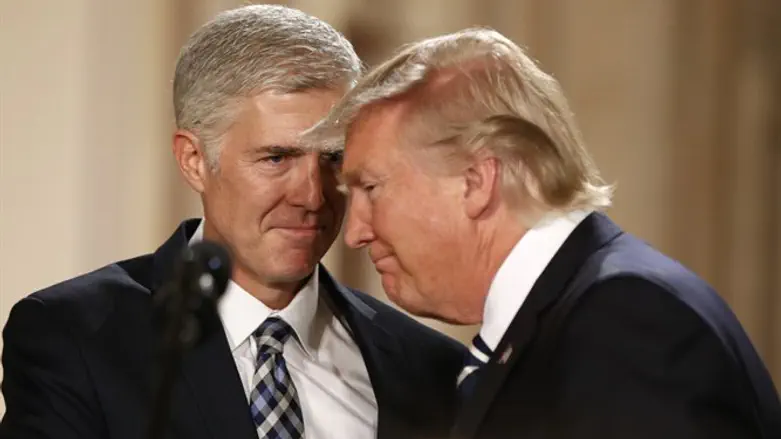
The US Senate voted 52 to 48 to invoke the “nuclear option”, ending the centuries-old filibuster for Supreme Court nominees and allowing a simple 51-vote majority to approve nominations.
Senate Majority Leader Mitch McConnell on Thursday initiated the “nuclear option” in the US Senate after Democrats successfully filibustered the nomination of Neil Gorsuch to the Supreme Court, with a 55 to 45 vote to invoke cloture and end debate on the nomination.
Just four Democrats joined the upper chamber’s 52 Republicans, with one Republican, Senate Majority Leader Mitch McConnell switching his vote to allow him to call for a revote.
Sixty votes were needed to invoke cloture, with Republicans falling four short before McConnell switched his vote.
Senators Michael Bennet of Colorado, Heidi Heitkamp of North Dakota, Joe Manchin of West Virginia, and Joseph Donnelly of Indiana joined with 51 Republicans in voting to end debate and hold an up-or-down vote on Gorsuch. Of the four Democrats, all but Bennet represent Republican leaning states and will be up for reelection next year.
Senator McConnell pledged earlier this week that Gorsuch would be confirmed by the Senate one way or another by the end of the week – a veiled threat to employ the so-called “nuclear option”.
Unlike the House of Representatives, most votes in the US Senate require a 60-40 majority to invoke cloture, ending debate and allowing a motion to be passed by the upper chamber.
But the ability to filibuster – prevent a vote from taking place – can be limited with just a 51-vote majority, which is empowered to change the Senate’s procedural rules.
Ending the 60-vote requirement, dubbed the “nuclear option”, allows simple majorities to confirm Supreme Court nominees.
In November 2013 the Democrat-majority Senate invoked the nuclear option by a margin of 52-48 to permit a 51-vote majority for the confirmation of all nominations other than the Supreme Court.
McConnell has pledged not to use the nuclear option for legislation, leaving the filibuster intact for most bills besides budget reconciliation acts.
Senate Minority Leader Chuck Schumer has warned that use of the nuclear option would end any possibility of bipartisan cooperation in the Senate during President Trump’s term in office.
Gorsuch, a Bush appointee on the US Tenth Circuit Court of Appeals, was nominated by Trump on February 1st to fill the vacancy left by Justice Antonin Scalia.
Scalia, a Reagan appointee, was considered a leading member of the “Original Intent” school of constitutional interpretation and a conservative favorite. He passed away in February 2016.
With the end of the 60-vote requirement for Supreme Court nominees, Gorsuch is expected to be approved by the Senate on Friday. A vote to end debate and invoke cloture was passed 55 to 45 Thursday immediately after the 60-vote requirement was dropped. Three Democrats crossed party lines to invoke cloture, including Heidi Heitkamp of North Dakota, Joe Manchin of West Virginia, and Joseph Donnelly of Indiana.
